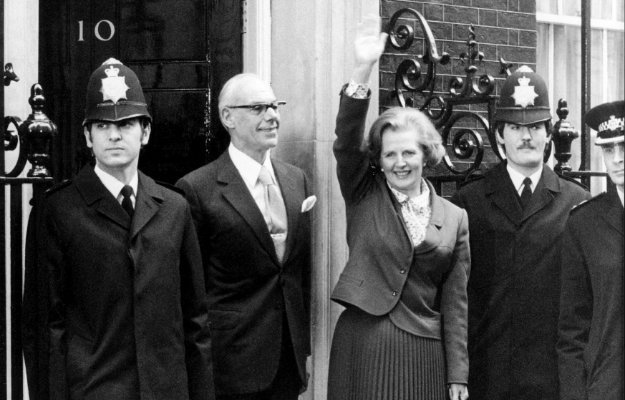Dr Ben Worthy from the Department of Politics reflects on the challenges facing the new prime minister and suggests that there is a way to overcome them.
Only one thing is predictable about our next prime minister: they will be a ground hog day leader. For all that the candidates are promising new deals, no deals and new directions, from day one they’ll face the same traps and tripwires that have destroyed May’s premiership.
No doubt May faced an uphill task, and had one of the worst in-trays of any peacetime prime minister. Particularly after June 2017, Theresa May faced a divided party, a split House of Commons and a divided country.
We should remember, before sending off our sympathy cards, that her decisions worsened what was already a bad situation. Her premiership was wrecked on her own promises and ‘red lines’, which she had to retreat from. Her neglect of Scotland and Northern Ireland led to talk of new referendums and separation. And the less said about her decision to hold a ‘snap’ election the better, as she manged to somehow win while losing, doing away with a majority she very, very badly needed.
The problem for whoever the next prime minister is that nothing will have changed. It may be that the new prime minister has some skills that May lacked. Perhaps she will be more decisive, a better communicator or less divisive. She could even enjoy a (brief) bounce in the polls and, if she’s lucky, some good will.
Yet like Theresa May, our next leader will be a ‘takeover’ PM, getting to power by replacement not an election win. Being a takeover almost always limits a leader’s lifespan and, sometimes, their authority. I estimated ‘takeovers’ have about three years.
The Conservative party will still be deeply, hopelessly split. There’ll still be no majority for the government in the House of Commons, and the option of a general election, given the local and EU election results, should be, to put it diplomatically, reasonably unappealing. As for ‘re-opening’ or ‘no dealing’ Brexit, the prime minister looks set to be trapped between an EU who will not renegotiate and a parliament that will not allow a no deal Brexit.
In fact, it will probably be worse for May’s successor. If our new prime minister wins by promising no deal or radical re-negotiations, they’ll have to U-turn or backtrack. Tensions will probably worsen with Scotland, where there are new referendum rumblings, and the complexities of Northern Ireland and the border will stay unsolved. Labour’s dilemmas and problem could make everything worse, not better.
Is there a way out? Perhaps. Prime ministers, like presidents, have a power to persuade. John Harris and Marina Hyde, as well as academics like Rob Ford, have been making the point that no one is trying to change anyone’s mind, or even suggesting it could be done. Yet why people voted how they did was complex and changeable. The whole debate about Brexit has been tied up with a belief that the UK is hopelessly and irredeemably polarised, and that the will of the people is now set in stone (listen in to Albert Weale’s great talk).
Instead of labelling opponents as enemies, why doesn’t our new prime minister try to persuade them? Time after time, from Iraq to same-sex marriage, politicians have tried to persuade the public to re-think their views. Parts of the population were persuaded in 2016. Can’t they be talked back again? It’s the only way out of the loop.
Ben Worthy is Senior Lecturer in Politics at Birkbeck. You can see more of his work on political leadership here.


